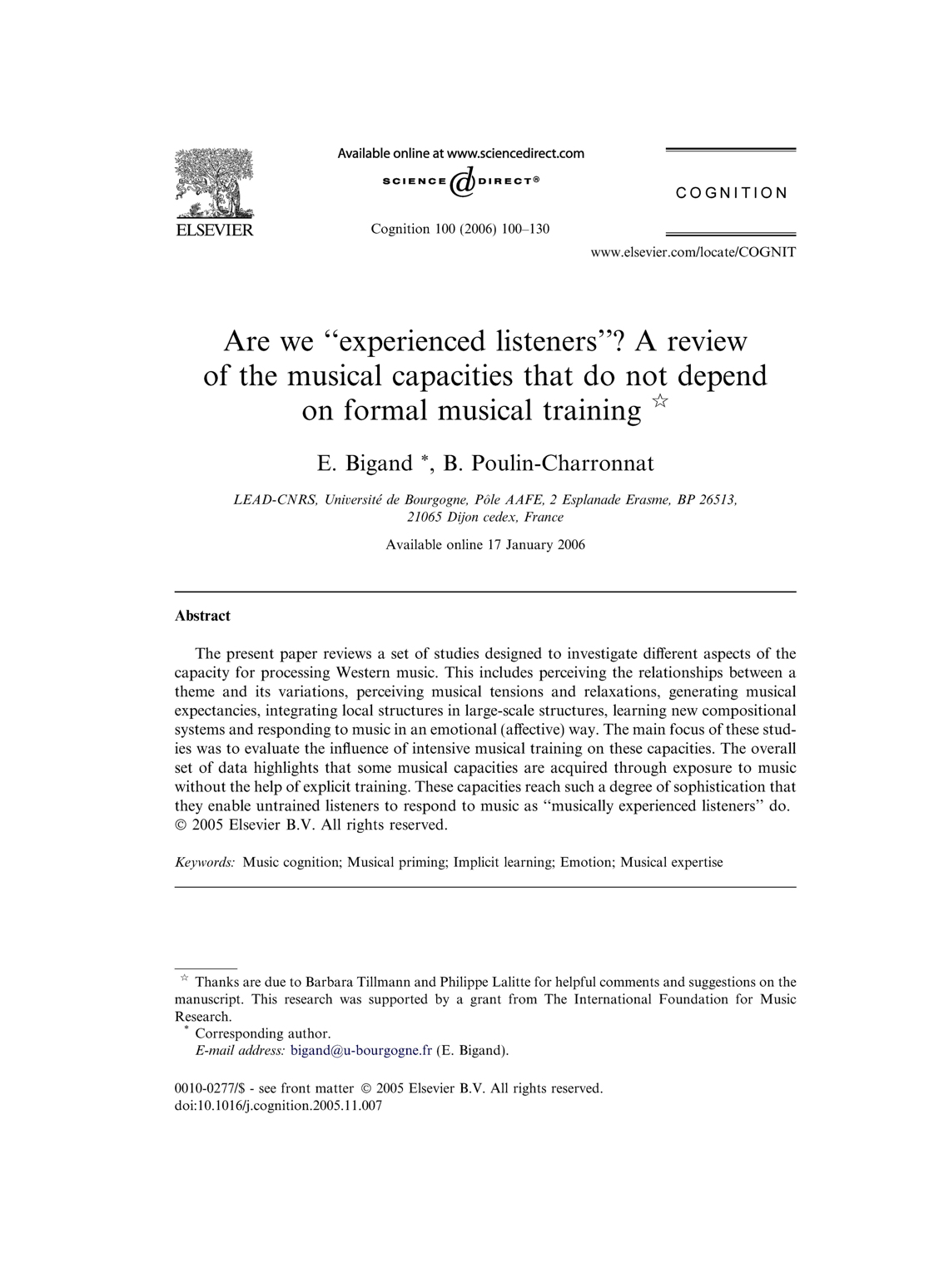The present paper reviews a set of studies designed to investigate different aspects of the capacity for processing Western music. This includes perceiving the relationships between a theme and its variations, perceiving musical tensions and relaxations, generating musical expectancies, integrating local structures in large-scale structures, learning new compositional systems and responding to music in an emotional (affective) way. The main focus of these studies was to evaluate the influence of intensive musical training on these capacities. The overall set of data highlights that some musical capacities are acquired through exposure to music without the help of explicit training. These capacities reach such a degree of sophistication that they enable untrained listeners to respond to music as “musically experienced listeners” do.
Are we “experienced listeners”? A review of the musical capacities that do not depend on formal musical training
